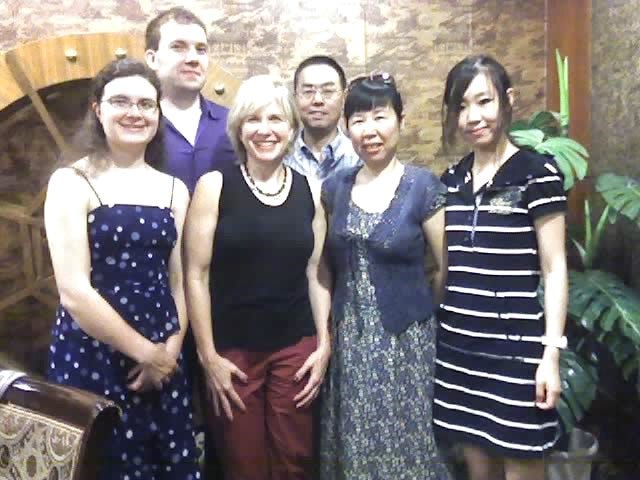The modern Olympic Games were founded to bring nations together on the playing field instead of the battlefield. As the publisher of major works on world sport (and women’s sports, too), that concept means a lot to me. What I hadn’t considered is that global sports might have another positive impact: alerting Chinese citizens that the rest of the world has moved on from extreme COVID-19 rules (more here).
You have probably read that Chinese media is trying to cut crowd scenes out of World Cup broadcasts. I guess they can try, but it seems the cat is out of the bag: packed stadiums with cheering fans will have been on display across the country, and of course on every smartphone.
Allen Guttmann, the Amherst College professor whom I worked with on the Berkshire Encyclopedia of World Sport and the International Encyclopedia of Women and Sports, was the first recipient of the International Olympic Committee’s award for sports history. He taught me to think of sports in terms of global impact:
Pierre de Coubertin [founder of the modern Olympics], who possessed a more inclusively cosmopolitan vision and greater organizational skills than his predecessors, succeeded where they had failed. Schooled in the classics like every educated European, he exploited the aura of antiquity in order to achieve an avowedly political goal - international peace and reconciliation.
I was in Beijing during the World Cup of 2010 with my partner and both my children. Everywhere we went the World Cup was playing, on restaurant TVs and screens on the street and even on the sky canopy at The Place, a shopping complex in the business district. That is, overhead there were footballers racing down the pitch on a screen so big (“7,500 sqm of LED lights across a space of 250m long and 30m wide”) you couldn’t possibly follow what was going on.
China didn’t have a team playing and the USA was hardly a favorite, but that didn’t matter. Everyone seemed to have a team to cheer for, and the internationality of Beijing City was palpable.
You couldn’t miss the fact that something was happening, something big and something global. One night we went to a bar with a German friend. A group across the room exploded when Slovakia scored. Yes, we learned, there were Slovakians in Beijing, too.
Of course, the number of foreigners in China is tiny now, by comparison, and people are not crowding into bars to watch the matches. But the World Cup, perhaps even more than the Olympics, brings the world together. Distances seem so much greater today than they did in 2010, when flights were frequent and cheap and when we weren’t thinking about climate change as much as we ought to have been, but these matches do more than entertain.
We were given the Chinese family name “Shen” because it echoes Christensen. Ours is only one of the possible characters for Shen, but it matched that of someone I was working with at the time, and the two Shen families went out for a meal together.
I hope that sports can help us reach across divides, and reconcile after conflicts, as it has in the past. In the meantime, I have a new appreciation of the World Cup - which, by the way, is getting more press coverage in the United States than ever before. Now we need to change the name of our annual baseball championship to something other than the World Series.
I’m not alone in feeling nostalgic about a time when I went to China regularly, and I know that many of my friends and colleagues feel a much greater longing, and sense of loss, than I do.
A highlight of that 2010 trip was a visit to the Buddhist temple complex in which much of the novel Peking Picnic takes place. It was a long trip by subway through the bleak industrial outskirts of Beijing, then a taxi ride. The temple itself, however, was quite wonderful - a place I hope to visit again! There was an impressive bamboo forest next to it and I’ll include here a photo of some of the graffiti that decorated all the bamboos stalks within reach, though I have no idea if the characters are poems or love notes or something less appropriate for a newsletter.
Good day to you, good wishes to all our friends in China, and, of course, Glory to Ukraine. My heat is turned down and I’m wearing a jacket and gloves to type this letter, in solidarity with the brave people of Ukraine.







